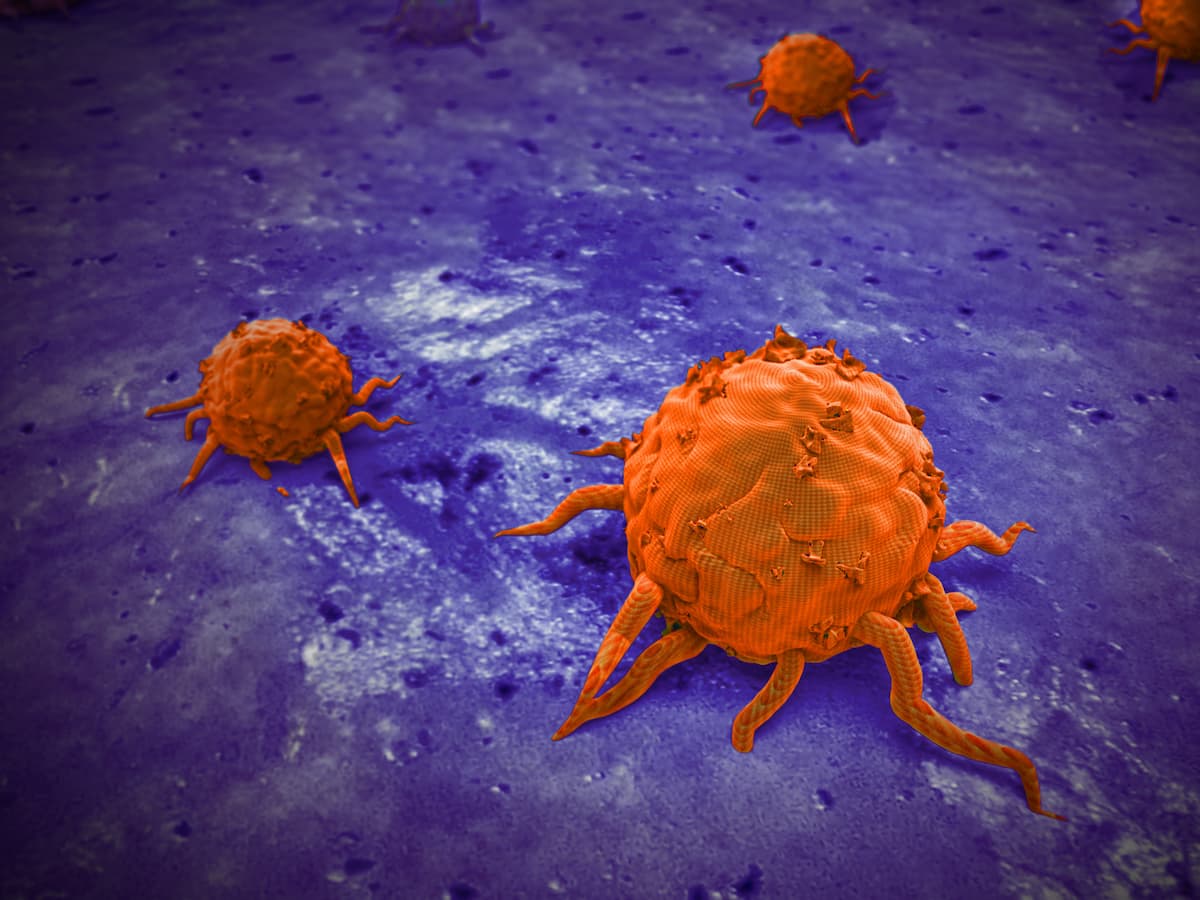Cabazitaxel Combo Improves Efficacy, PSA Response in Metastatic CRPC
Data from a phase 2 trial suggests that earlier use of abiraterone acetate/prednisone plus cabazitaxel may elicit clinical benefit in patients with metastatic castration-resistant prostate cancer.
"Our study suggests that earlier use of [abiraterone acetate/prednisone plus cabazitaxel] may have clinical benefit," according to the study authors.

Adding cabazitaxel (Jevtana) to abiraterone acetate (Zytiga)/prednisone led to tolerability, improvements in radiographic progression-free survival (rPFS) and overall survival (OS), and more prostate-specific antigen (PSA) declines compared with abiraterone acetate/prednisone alone in patients with metastatic castration-resistant prostate cancer (CRPC), according to findings from a phase 2 study (NCT02218606) published in Journal of Clinical Oncology.
Among 42 patients assigned to receive abiraterone acetate/prednisone alone, the median rPFS was 6.4 months (95% CI, 3.8-10.6). Patients were able to switch treatment after ending the abiraterone acetate/prednisone regimen, and the median time to switch to cabazitaxel was 0.5 months (95% CI, 0.3-0.9). Investigators reported a median OS of 18.3 months (95% CI, 14.4-37.6) after a median follow-up of 44.2 months. Additionally, 56.1% (n = 23/41; 95% CI, 40.0%-72.0%) of patients in this arm had at least a 50% reduction in PSA from baseline with a median time to PSA progression of 9.2 months (95% CI, 7.4-13.4).
The median rPFS was 14.8 months (95% CI, 10.6-16.4) among 39 patients randomly assigned to receive abiraterone acetate/prednisone plus cabazitaxel. Patients experienced a median OS of 24.5 months (95% CI, 20.4-35.0) after a median follow-up of 46.7 months. Moreover, investigators highlighted a PSA decline of 50% or more from baseline in 92.1% (n = 35/38; 95% CI, 79.0%-98.0%) with a median PSA progression of 15.1 months (95% CI, 10.9-19.0).
Although the trial was not designed to compare the 2 treatment arms, an exploratory analysis indicated an estimated HR of 0.56 (95% CI, 0.35-0.90) with respect to rPFS for abiraterone acetate/prednisone plus cabazitaxel compared with abiraterone acetate/prednisone alone. Additionally, the HR was 0.78 (95% CI, 0.46-1.31) for OS and 0.64 (95% CI, 0.40-1.04) for PSA progression. According to the investigators, these findings should be interpreted with caution due to the analyses not being defined per protocol.
“These findings suggest cabazitaxel may have a direct effect on the microenvironment allowing a subset of prostate cancer cells to remain sensitive to [abiraterone acetate/prednisone],” the study authors wrote. “Our study suggests that earlier use of [abiraterone acetate/prednisone plus cabazitaxel] may have clinical benefit.”
In this open-label, noncomparative trial, patients were randomly assigned 1:1 to receive 1000 mg of abiraterone acetate orally once a day plus 5 mg of oral prednisone twice a day followed by switching to 25 mg/m2 of cabazitaxel intravenously every 3 weeks until radiographic progression, or upfront treatment with abiraterone acetate/prednisone plus cabazitaxel.
The trial’s primary end point was rPFS. Secondary end points included changes in PSA following therapy, PSA PFS, OS, and safety.
Patients 18 years and older with histologically or cytologically confirmed prostate cancer and documented progressive metastatic CRPC were able to enroll on the study. Additional eligibility criteria included having an ECOG performance status of 0 to 2 and a fresh biopsy of at least 1 metastatic site or primary prostate if feasible.
The study included a total of 81 patients whose median age was 68.0 years (range, 49.0-85.0). Additionally, most patients were White (77.7%), non-Hispanic (100.0%), and had Halabi nomogram high-risk disease (35.8%). The median PSA at baseline was 23.6 ng/mL (range, 0.9-845.4).
Analyses indicated that RB expression in tumor biopsy, circulating tumor cell, or tissue explants were not factors that could identify patients who may potentially benefit from abiraterone acetate/prednisone plus cabazitaxel.
Investigators highlighted no unexpected toxicities associated with study treatment. Additionally, 64.3% and 60.5% of patients receiving abiraterone acetate/prednisone and abiraterone acetate/prednisone plus cabazitaxel, respectively, experienced grade 3 or higher toxicities. There was a single grade 5 event observed in a patient receiving abiraterone acetate/cabazitaxel alone due to rapid disease progression.
Reference
Slovin SF, Knudsen K, Halabi S, et al. Randomized phase II multicenter trial of abiraterone acetate with or without cabazitaxel in the treatment of metastatic castration-resistant prostate cancer. J Clin Oncol. Published online August 15, 2023. doi:10.1200/JCO.22.02639
Prolaris in Practice: Guiding ADT Benefits, Clinical Application, and Expert Insights From ACRO 2025
April 15th 2025Steven E. Finkelstein, MD, DABR, FACRO discuses how Prolaris distinguishes itself from other genomic biomarker platforms by providing uniquely actionable clinical information that quantifies the absolute benefit of androgen deprivation therapy when added to radiation therapy, offering clinicians a more precise tool for personalizing prostate cancer treatment strategies.